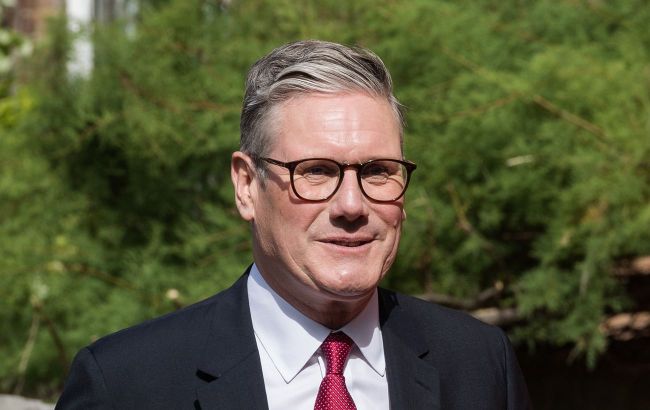UK and Germany join forces with new defense agreement - Bloomberg
 UK Prime Minister Keir Starmer (Photo: Getty Images)
UK Prime Minister Keir Starmer (Photo: Getty Images)
The UK and Germany will sign an agreement committing to mutual assistance in the event of an armed attack against either country, as well as joint efforts to counter other potential threats, according to Bloomberg.
The signing is scheduled for Thursday, July 17, in London by UK Prime Minister Keir Starmer and German Chancellor Friedrich Merz.
The groundwork for the agreement was laid during Starmer’s meeting with Merz’s predecessor, Social Democrat Olaf Scholz, in August 2024 in Berlin. At that time, the British prime minister described the upcoming deal as part of a broader reset based on a new spirit of cooperation.
The leader of Germany’s conservatives, Friedrich Merz, has publicly expressed regret over the United Kingdom’s exit from the EU and stated his readiness to join forces with Keir Starmer to tackle challenges such as the trade policies of former US President Donald Trump’s administration and Russia’s war against Ukraine.
Merz is visiting London just a week after French President Emmanuel Macron’s trip - the first official visit by a European leader to Britain since Brexit, signaling a thaw in Anglo-French relations.
During the visit, Starmer and Merz are set to sign the agreement at a ceremony held at the Victoria and Albert Museum in London.
Defense component
A senior German government official told Bloomberg that the mutual defense commitment is a response to two challenges:
- the increasing aggressive actions from Russia;
- growing concerns among European allies about the U.S. commitment to NATO obligations during Donald Trump’s presidency.
At the same time, the source, speaking on condition of anonymity, clarified that the new agreement is not an alternative to the collective defense principle enshrined in Article 5 of the North Atlantic Treaty.
Bloomberg also noted that the defense component is particularly important for Germany, given that the UK, along with France, is one of the two nuclear powers in Europe. Although Germany does not possess its nuclear weapons, it benefits from the protective umbrella that the US has deployed over the European continent.
At the same time, German officials emphasize that nuclear issues are not explicitly mentioned in the text of the new agreement.
Joint missile system
In the agreement, Starmer and Merz commit to jointly implementing a program over the next decade to develop a new long-range missile system, known as the Deep Precision Strike system.
The system is expected to have a range of over 2,000 kilometers and will help strengthen the defense sectors of both the United Kingdom and EU countries through significant industrial investments.
Illegal migration and trade
The agreement also includes measures in trade, transport, and combating illegal migration, as part of joint efforts to mitigate the negative impacts of Brexit.
Specifically, according to Prime Minister Starmer’s office, Germany will commit to amending its legislation on criminal liability for facilitating illegal migration to the UK by the end of this year.
Additionally, during the visit, the leaders will discuss ongoing negotiations between Brussels and Washington on a trade agreement.
According to German government sources, Merz is urging a swift conclusion of the EU–US deal and sees the new agreement between Trump and Starmer as a potential model.
Domestic political challenges
At the same time, as Bloomberg notes, the leaders of both countries may use the signing of the new agreement to divert attention from their internal political issues.
Starmer has recently had to make a series of sharp policy shifts, which have undermined the government’s hard-earned reputation for financial discipline.
“The international stage is clearly where he is happiest at the moment. The treaty symbolizes his commitment to rebuilding European relations post-Brexit but also allows him to temporarily put his domestic troubles to one side,” said Gemma Lums, a lecturer in comparative politics at the University of Kiel.
Meanwhile, Merz is facing growing divisions within the ruling coalition: his conservative CDU/CSU bloc and the Social Democrats disagree on a wide range of issues, from social welfare reforms to judicial appointments, and are already drawing comparisons to the disputes that challenged Scholz’s government.
Investment component
Prime Minister Starmer’s office also announced that, alongside the political agreement, the UK and Germany will unveil new commercial investments totaling over £200 million (approximately $268 million), which are expected to create around 600 new jobs.
Specifically, the plans include:
- The first expansion of STARK, a defense technology company, outside Germany, with a new facility planned in Swindon;
- A £50 million investment in the UK by the German company Cognigy GmbH, specializing in conversational artificial intelligence;
- Siemens Energy AG’s plans to create 200 new jobs, as well as hire 100 new interns and graduates starting this fall.
According to media reports, Keir Starmer could resign within a few months due to dissatisfaction with his government’s performance.
In early June, Starmer declared a state of combat readiness in the UK amid rising global threats.
Meanwhile, Merz has voiced support for reinstating conscription in the German Bundeswehr.

